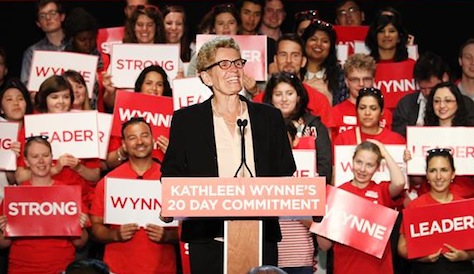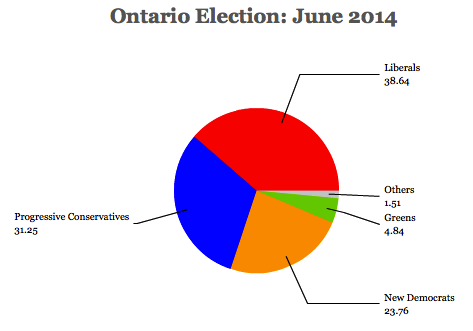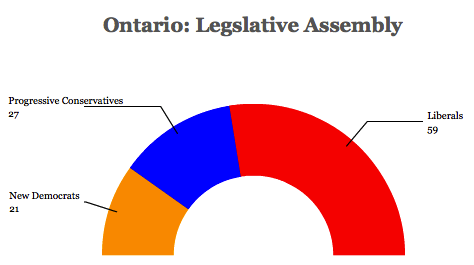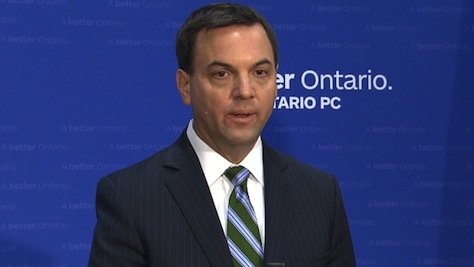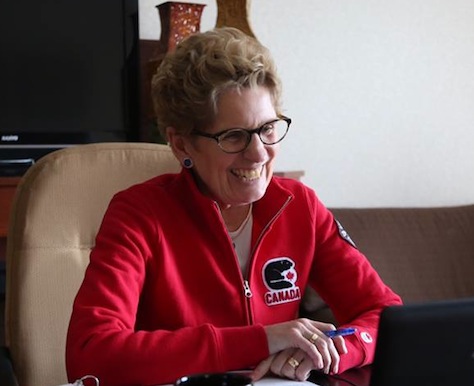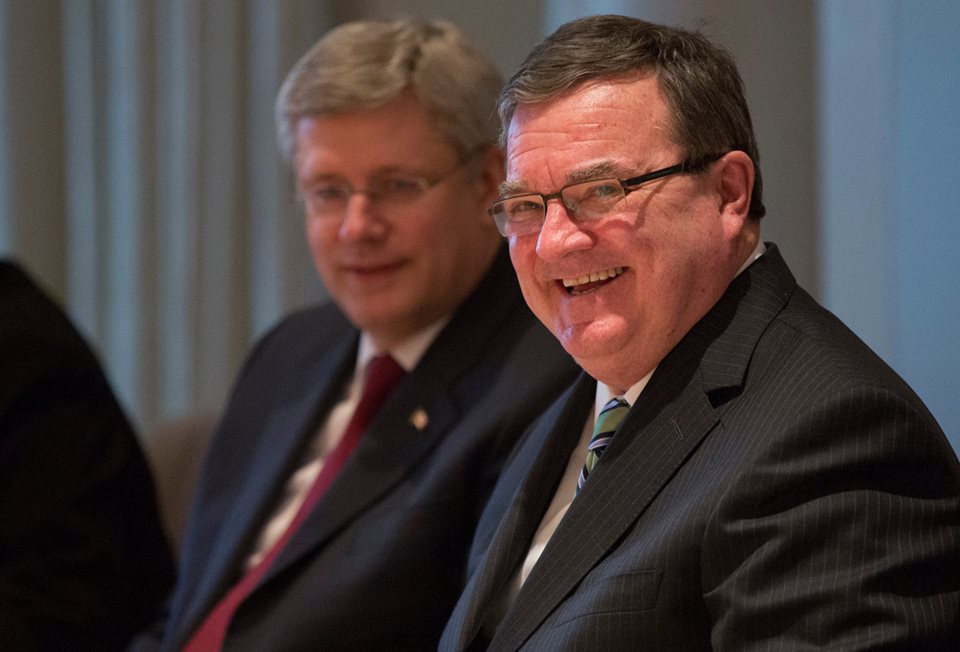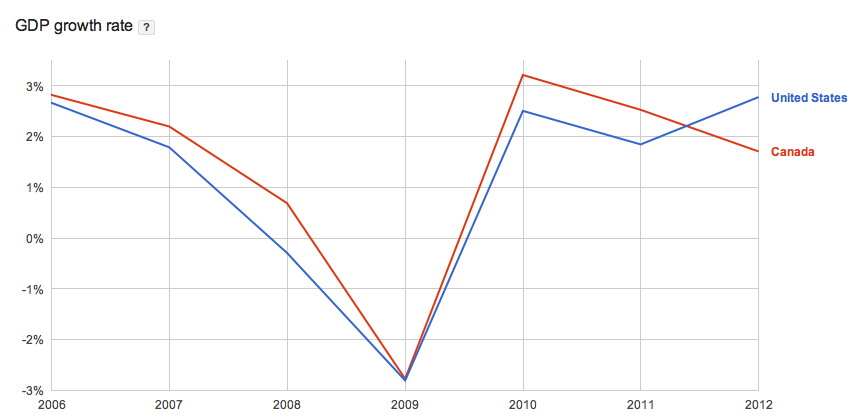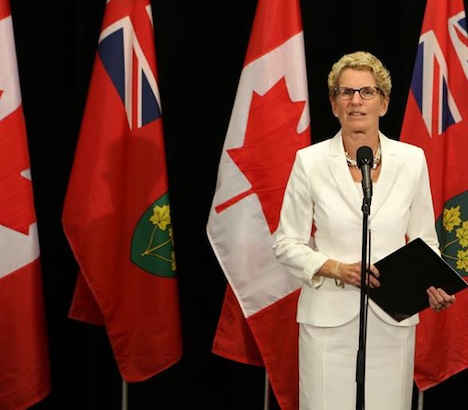
Though it’s been five months since the first reports emerged that Toronto mayor Rob Ford smoked crack cocaine, it’s only been within the last week that the controversy surrounding Ford has reached truly staggering attention.


When the embattled mayor earlier this month admitted that he used crack cocaine in a drunken stupor, he only opened the floodgates to more questions — and more allegations, which have certainly followed in short order. It’s been a truly catastrophic week for Ford, who made his problems even worse with some misogynist comments about a former female aide, his refusal to step down as mayor, further admissions that he’d purchased illegal drugs in the last two years, and that he’s operated a vehicle while drunk.
But this week also marks the first time that anyone’s suggested that the province of Ontario should step in — and that’s putting Ontario premier Kathleen Wynne in the spotlight, who is the absolute opposite of everything Ford represents. Wynne is not only the first female premier of Ontario and the highest-ranking openly gay official in Canadian politics, Wynne exemplifies the polite, dignified consensus-driven leadership for which Canada has become so well-known.
Wynne gently waded into Toronto’s growing crisis earlier this week, urging Ford to take heed of the Toronto city council’s call to step down:
“The concern for me is that city council can function and it seems today that that’s exactly what’s happening,” she said, referring to two overwhelming council votes to politically emasculate the mayor by stripping him of some powers. “I see that city council is making decisions and they are determined . . . to find a way to make that work,” the premier said at a Council of the Federation meeting in Toronto.
There’s not much that the Ontario premier can actually do to remove Ford, though Wynne opened the door to legislative action earlier this week — but only at the request of the Toronto city council and only with the support of the leaders of both the Progressive Conservative Party of Ontario, Tim Hudak, and the Ontario New Democratic Party, Andrea Horwath.
Ironically, it’s the ‘amalgamation’ plan that former Progressive Conservative prime minister Mike Harris pushed through the Ontario legislative assembly in 1998, over the protest of many Toronto residents, that made Rob Ford’s 2010 election possible. Under amalgamation, the city of Toronto merged with the surrounding communities of East York, Etobicoke, North York, Scarborough, and York — Ford himself comes from Etobicoke, a suburb to the west of Toronto’s urban core.
Meanwhile, the Toronto city council is likewise limited in its ability to remove Ford from office, though it voted to strip Ford of many of his powers on Friday — on a vote of 39-3, councillors removed Ford’s ability to hire or to fire the city’s standing committee chairs and the deputy mayor, and on a vote of 41-2, councillors voted that Ford’s powers should be delegated to the deputy mayor in the event of an emergency situation. Despite the council’s limitations, it’s important to keep in mind that the office of mayor in Toronto is relatively circumscribed — in many ways, Ford is more like the council chief than a true chief executive with the broad executive powers of, say, the New York City mayor.
Ford has become an international punchline, to the horror of many Toronto residents, who are proud of a city long known as Canada’s financial capital, a magnet for immigration, and a quiet showcase of North American prosperity and safety.
Far less well-known is Wynne, who is the anti-Ford of Ontario politics. In her remarks on the Toronto mayoral situation earlier this week, she stressed that Ford’s antics do not characterize Ontario and do not characterize Toronto — Wynne herself represents Toronto in Ontario’s legislative assembly:
“I believe Toronto is not defined by one person, by one politician. We have to be very careful that we not allow ourselves to be defined by this,” she said.
Still, the premier expressed sympathy for Ford and his family, given the mayor’s drinking and admitted illegal drug use. “I’m very concerned about the human element of this. A person who is struggling in his life, as far as I can tell, and so I hope that he will look after himself.”
Wynne became the province’s first female premier in February. But that’s not exactly a surprising feat in Canada, where Kim Campbell served as the first female prime minister (however briefly) for just over four months in 1993, and where the premiers of Québec, Alberta and British Columbia are all women. What makes Wynne more remarkable is that she’s the first openly gay premier of any Canadian province. Continue reading Meet Kathleen Wynne — Ontario’s premier and the 180-degree opposite of Rob Ford →
![]()
![]()
